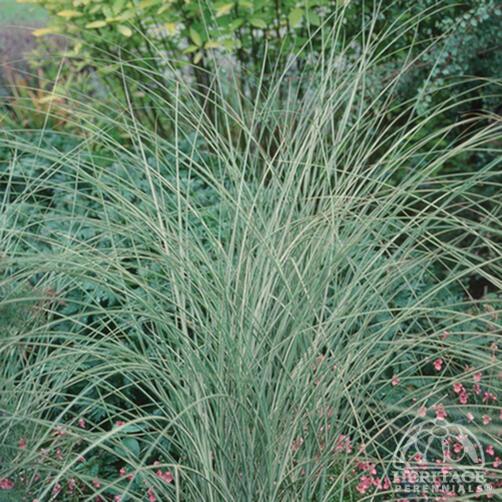Miscanthus sinensis ‘Morning Light’
Plant number: 8.270.320There are many varieties of Miscanthus now available. This outstanding selection forms a graceful, upright mound of narrow green foliage, each leaf neatly edged in creamy-white. Clumps have a sturdy, compact habit, well suited to the smaller garden. Coppery-pink plumes appear in late fall, although sometimes not at all in cool summer regions. The foliage dries and turns a light tan shade for the winter. Useful as a specimen, in the border, or for mass planting. Cut back to 4 inches in late winter or early spring. Clumps may be divided in spring before new growth appears. Of Japanese origin, introduced to North America in 1976 by the U.S. National Arboretum. Received a Royal Horticultural Society Award of Garden Merit (2001). Further details for |
| All 23 results here | Alphabetical list of all 4,000+ perennials here |
Miscanthus sinensis ‘Morning Light’
Plant number: 8.270.320There are many varieties of Miscanthus now available. This outstanding selection forms a graceful, upright mound of narrow green foliage, each leaf neatly edged in creamy-white. Clumps have a sturdy, compact habit, well suited to the smaller garden. Coppery-pink plumes appear in late fall, although sometimes not at all in cool summer regions. The foliage dries and turns a light tan shade for the winter. Useful as a specimen, in the border, or for mass planting. Cut back to 4 inches in late winter or early spring. Clumps may be divided in spring before new growth appears. Of Japanese origin, introduced to North America in 1976 by the U.S. National Arboretum. Received a Royal Horticultural Society Award of Garden Merit (2001). Further details for |






